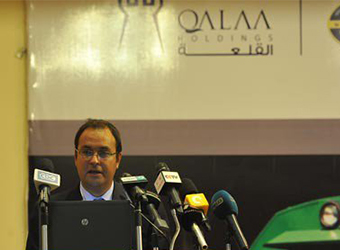Africa will need an additional 292,000 MW of electricity generation capacity over the next 25 years, said Karim Sadek, managing director of Egypt’s Qalaa Holdings, on Sunday.
“The continent currently has the lowest electricity generation capacity in the world so the challenges are tremendous.” Sadek said in a keynote at Africa Innovates” conference in Helsinki, Finland.
The conference aimed to build sustainable and innovative business partnerships between players from Africa and the Nordic countries.
Sadek showcased Qalaa’s diversified portfolio of energy investments at “Africa Innovates” to boost economic cooperation and knowledge sharing between Africa and the Nordic countires in key sectors such as infrastructure, energy, education, healthcare, and ICT.
The Qalaa official highlighted the fact that while Africa is home to some of the world’s fastest growing economies, the lack of affordable and reliable energy is hindering its ability to achieve sustainable economic growth.
“While access to electricity in Sub-Saharan Africa has more than doubled in the past 15 years growing from 14 percent in 1990 to 35 percent in 2014 the number of people who have no access to the electricity grid is still well below other developing regions with total electricity capacity per capita standing at 0.4 MW per 1,000 people; a third of the capacity of South Asia and a tenth of the capacity of Latin America. So Africa is basically where China stood 30 years ago,” explained Sadek.
The challenges present ample opportunities for investment in both conventional and alternative energy and that solutions like off-grid solar technologies are particularly well-suited to connecting rural households more quickly and cheaply in areas where centralized grids are slow and expensive to deploy, he added.
To keep pace with projected economic growth and provide much needed energy capacity in its home country of Egypt and the wider region, Qalaa has invested in a range of energy projects from refining, to natural gas and electricity distribution and alternative energy solutions, Sadek stated.
The company’s energy investments are held under three distinct subsidiaries: The Egyptian Refining Company (ERC), a state-of-the-art $ 3.7 billion refinery (the largest in Africa) that will produce 4.2 million tons of diesel, TAQA Arabia, Egypt’s largest independent energy distribution company, and Tawazon, a market pioneer in the production of biomass and RDF as alternative fuels.
“Addressing Africa’s energy deficit whether through renewable or traditional solutions will require capital that governments on their own will not be able to deploy which is why the private sector must work with African governments to develop transformative energy projects,” said Sadek.


